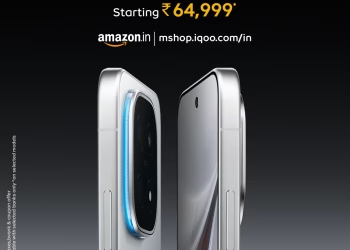Nothing just hit a massive milestone – $1 billion in cumulative revenue with over 7 million products sold in 2024. Yet CEO Carl Pei admits the company is still losing money. His blunt assessment: “This is a very challenging industry.” Here’s why this paradox defines the modern smartphone business.
Table of Contents
The Numbers Behind the Success
Revenue Growth Explosion
Nothing doubled its annual revenue to over $500 million in 2024 while crossing $1 billion in lifetime sales. The company has become the fastest-growing smartphone brand in India, achieving 557% year-over-year growth in one of the world’s most competitive markets.
Geographic Success
Nothing’s primary markets include India, Germany, and the UK, with the company strategically focusing on regions where it can build meaningful market presence despite intense competition from established giants.

The Loss-Making Reality
Revenue vs Profitability Gap
Even with roughly $1 billion in annual revenue this year, Nothing is still loss-making. This highlights a critical industry truth: scale doesn’t automatically equal profitability in the smartphone business.
Strategic Decision Making
In the context of ongoing losses, every new device must contribute clearly to profitability. This explains why Nothing hasn’t rushed into trendy but risky categories like foldables, which represent low-volume, high-risk ventures that don’t meet the profitability bar yet.
Why the Industry is “Very Challenging”
| Challenge | Impact on Nothing | Industry Reality |
|---|---|---|
| Component Costs | Compressed margins despite scale | Rising chip and display prices |
| Supply Chain | Startup struggles with suppliers | Giants get preferential terms |
| R&D Investment | Heavy upfront costs for innovation | Continuous tech advancement required |
| Marketing Spend | High customer acquisition costs | Brand building in saturated markets |
| Competition | Price wars with established players | Apple/Samsung market dominance |
The Startup Disadvantage
Supplier Relations
Sourcing components and finding suppliers willing to work with a startup was a significant hurdle for Nothing. Established brands like Apple and Samsung get better pricing, priority allocation, and favorable payment terms that startups simply can’t match.
Scale Economics
When Pei visits the U.S., people guess the startup’s annual sales to be around $30 million, when in actuality, this year is projected to reach $1 billion – 33x bigger. This perception gap shows how difficult it is for newcomers to be taken seriously by carriers and retailers.

The Path Forward Strategy
Funding for Growth
Nothing is seeking to raise at least $100 million in funding to expand its operations, backed by impressive investors including Google’s venture arm GV and Tony Fadell, having raised $250 million in venture capital from firms like EQT Ventures.
Market Expansion Plans
The company is in early talks with American carriers to launch a phone in the U.S. market, representing a crucial step toward global scale and profitability.
Industry Economics: The Harsh Truth
Why Success ≠ Profit
Nothing’s story illustrates the brutal economics of smartphone manufacturing:
- Razor-thin margins on hardware sales
- Massive R&D investments for each product generation
- Marketing costs to break through consumer awareness
- Supply chain complexity requiring significant working capital
The Long Game
Every new device must contribute clearly to profitability, forcing Nothing to be extremely selective about product expansion. This disciplined approach may be key to eventual profitability.

What This Means for the Industry
Startup Reality Check
Nothing’s billion-dollar revenue with ongoing losses proves that even successful hardware startups face years of investment before achieving profitability. The smartphone industry’s barriers to entry extend far beyond just building great products.
Innovation vs Sustainability
The company’s focus on transparent design and unique user experiences shows innovation is possible, but compressed margins mean every innovation must be carefully balanced against cost implications.
The Bigger Picture
Carl Pei’s admission that Nothing remains loss-making despite $1 billion in revenue isn’t a failure – it’s transparency about industry realities. The smartphone business rewards scale, patience, and deep pockets. Nothing’s growth trajectory suggests they’re building toward sustainable profitability, but the journey requires navigating one of technology’s most challenging competitive landscapes.
Key Takeaways:
- Revenue growth doesn’t guarantee immediate profitability in hardware
- Supply chain relationships give established players significant advantages
- Market perception affects everything from carrier partnerships to investor confidence
- Strategic discipline is crucial when operating at a loss
Nothing’s story is still being written, but their billion-dollar milestone while remaining loss-making perfectly encapsulates why Carl Pei calls this “a very challenging industry.”
Follow Nothing’s journey and more startup success stories at TechnoSports. For the latest smartphone industry analysis, visit our mobile technology section.
Sources: Bloomberg | Carl Pei Twitter | 9to5Google








